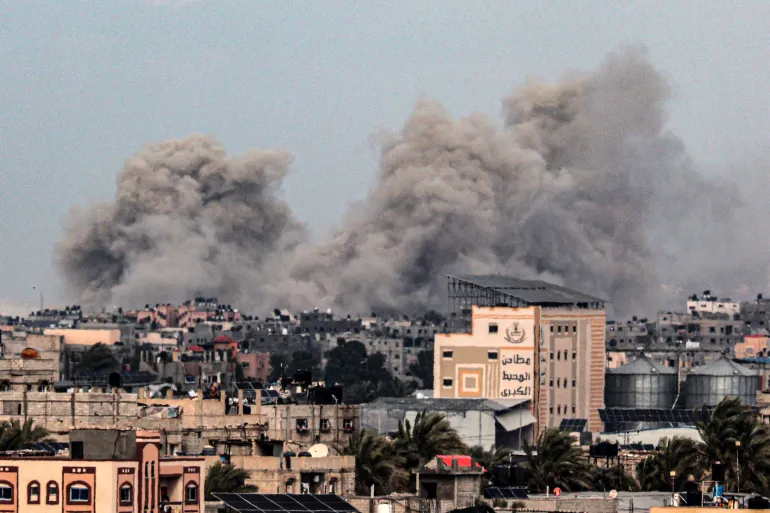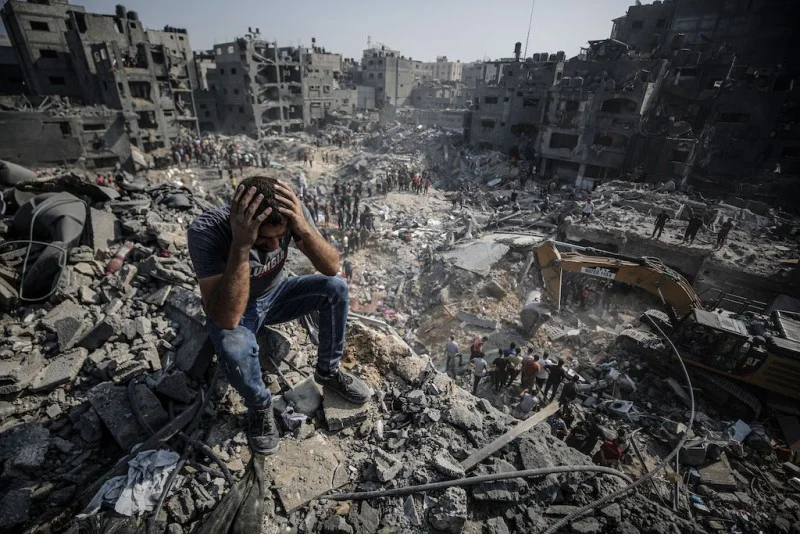As Israel intensifies its offensive in Gaza and Iran-backed groups ramp up retaliation, the conflict is no longer confined to Israel and the Palestinian
As Israel intensifies its offensive in Gaza and Iran-backed groups ramp up retaliation, the conflict is no longer confined to Israel and the Palestinian territories.
From Yemen to Lebanon, Iraq to Egypt, the war is triggering regional instability, threatening international trade routes, and reshaping diplomatic alliances.
Here’s how other countries are being affected:

🇱🇧 Lebanon: Near-War Along the Northern Border
Hezbollah, a powerful Iran-backed militant group in Lebanon, has launched near-daily attacks on Israeli military positions along the Israel-Lebanon border, prompting heavy Israeli airstrikes in return.
Entire villages in southern Lebanon have been evacuated, and both sides have suffered dozens of casualties.
While a full-scale war hasn’t broken out, tensions are at their highest since the 2006 Lebanon War, with both the U.S. and France working to prevent escalation.
Impact: Lebanon’s economy, already in collapse, is further strained. There are fears that another war would be devastating for a country already hosting over a million Syrian and Palestinian refugees.
🇪🇬 Egypt: Caught Between Diplomacy and Border Pressures
Egypt is key to regional diplomacy, hosting multiple rounds of indirect Israel-Hamas’s ceasefire talks.
But Egypt also shares a border with Gaza at Rafah, where tens of thousands of displaced Palestinians have sought escape — many trapped after Israel closed the crossing.
Egypt is deeply concerned about being forced to accept a mass Palestinian exodus, which it strongly opposes, fearing long-term demographic and security consequences in the Sinai.
Impact: Egypt has increased troop deployments to its border, reinforced security in North Sinai, and warned of a “regional catastrophe” if the war continues.
🇯🇴 Jordan: Political Pressure and Border Security
Pro-Palestinian protests have erupted across Jordan, where over half the population is of Palestinian descent.
King Abdullah II has condemned Israeli actions and warned of the West Bank and Jerusalem “exploding” if the war spreads.
Jordan’s border with the West Bank is being closely monitored for any signs of spillover violence or refugee flows.
Impact: Rising domestic pressure on Jordan’s monarchy, growing security concerns, and a renewed push for international mediation.
🇾🇪 Yemen: Houthis Open a New Front
The Iran-backed Houthi rebels have dramatically escalated their involvement by firing missiles and drones at Israel, including the recent successful strike on Ramon Airport in southern Israel.
In response, Israel has conducted strikes on Sana’a, killing high-ranking Houthi officials.
The Houthis have also attacked commercial ships in the Red Sea, prompting U.S. and allied naval operations in the area.
Impact: The Red Sea shipping route — one of the world’s most important — is at risk. Yemen could become a direct battleground in the broader Iran-Israel confrontation.
🇮🇶 Iraq: Militias Join the Fray
Iraqi Shia militias, some aligned with Iran’s Quds Force, have launched attacks on U.S. military bases in Iraq and Syria in retaliation for U.S. support of Israel.
In response, the U.S. has carried out airstrikes on militia targets, raising fears of renewed instability in Iraq.
Impact: Iraq risks being dragged into a proxy conflict, undermining its fragile post-ISIS recovery and ongoing political stabilization efforts.
🇸🇦 Saudi Arabia: Walking a Diplomatic Tightrope
The war has halted normalization talks between Saudi Arabia and Israel — a key pillar of U.S. diplomacy in the region.
While Riyadh has condemned Israeli actions in Gaza, it has also avoided direct confrontation, wary of antagonizing Iran or derailing economic priorities like Vision 2030.
Impact: Saudi Arabia’s foreign policy recalibration shows how the Gaza war is derailing broader efforts to reshape the Middle East diplomatically and economically.
🌍 Global Shipping & Trade: Red Sea Under Threat
The Houthis’ threats and attacks on ships have prompted many shipping companies to reroute vessels around Africa, avoiding the Red Sea and Suez Canal.
Insurance costs for shipping through the region have surged, impacting global supply chains and increasing delivery times and costs, especially for Europe and Asia.
Impact: A prolonged conflict could spark a global trade crisis, similar to the Ever Given Suez Canal blockage in 2021, but with more sustained disruption.
🧭 What This Means
The longer the war in Gaza continues — and the deeper Israel pushes into Gaza City — the greater the risk of a multi-front regional conflict involving multiple armed groups, major powers, and fragile states. The threat is no longer limited to Hamas but increasingly includes:
- Hezbollah (Lebanon)
- Houthis (Yemen)
- Iraqi militias
- Iran, acting as the strategic backer of all three
As ceasefire talks remain frozen and retaliatory attacks escalate, regional stability is eroding, and the potential for a broader Middle East war is growing by the day.


